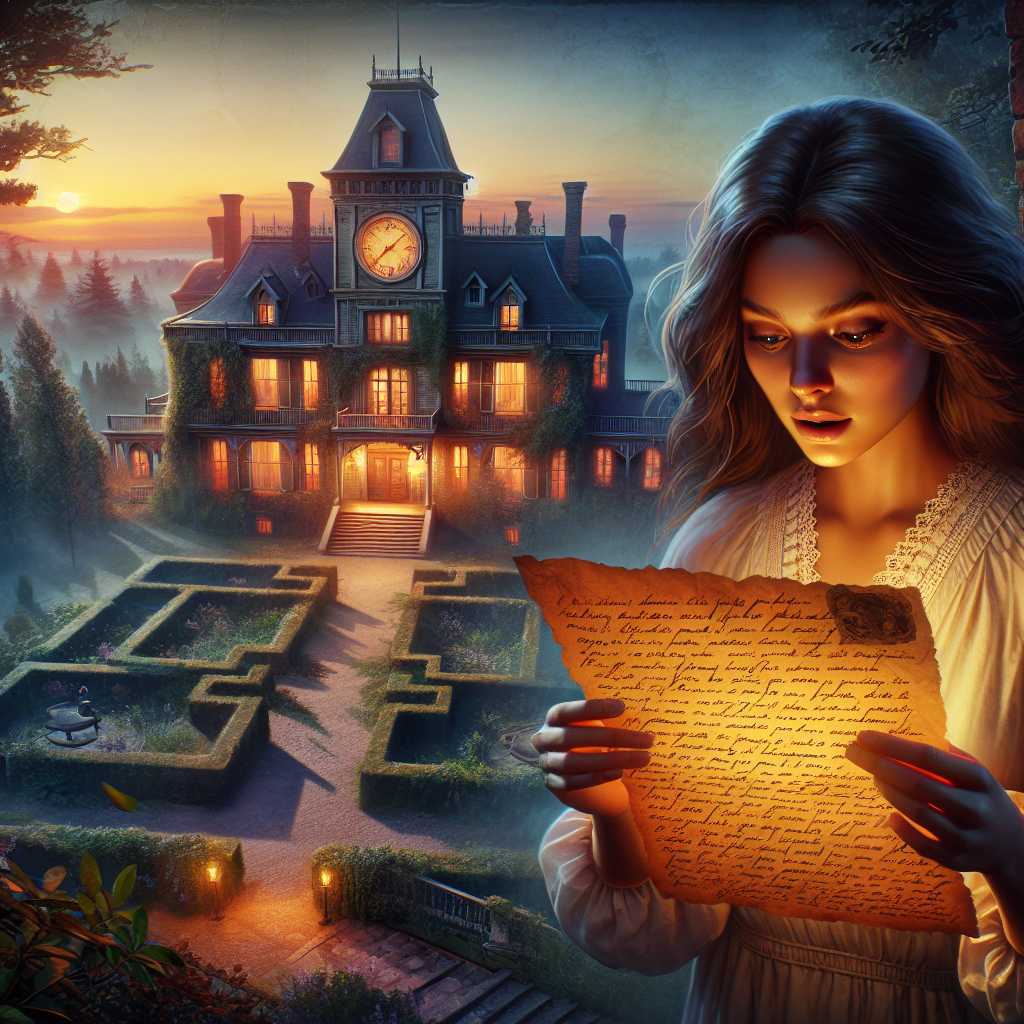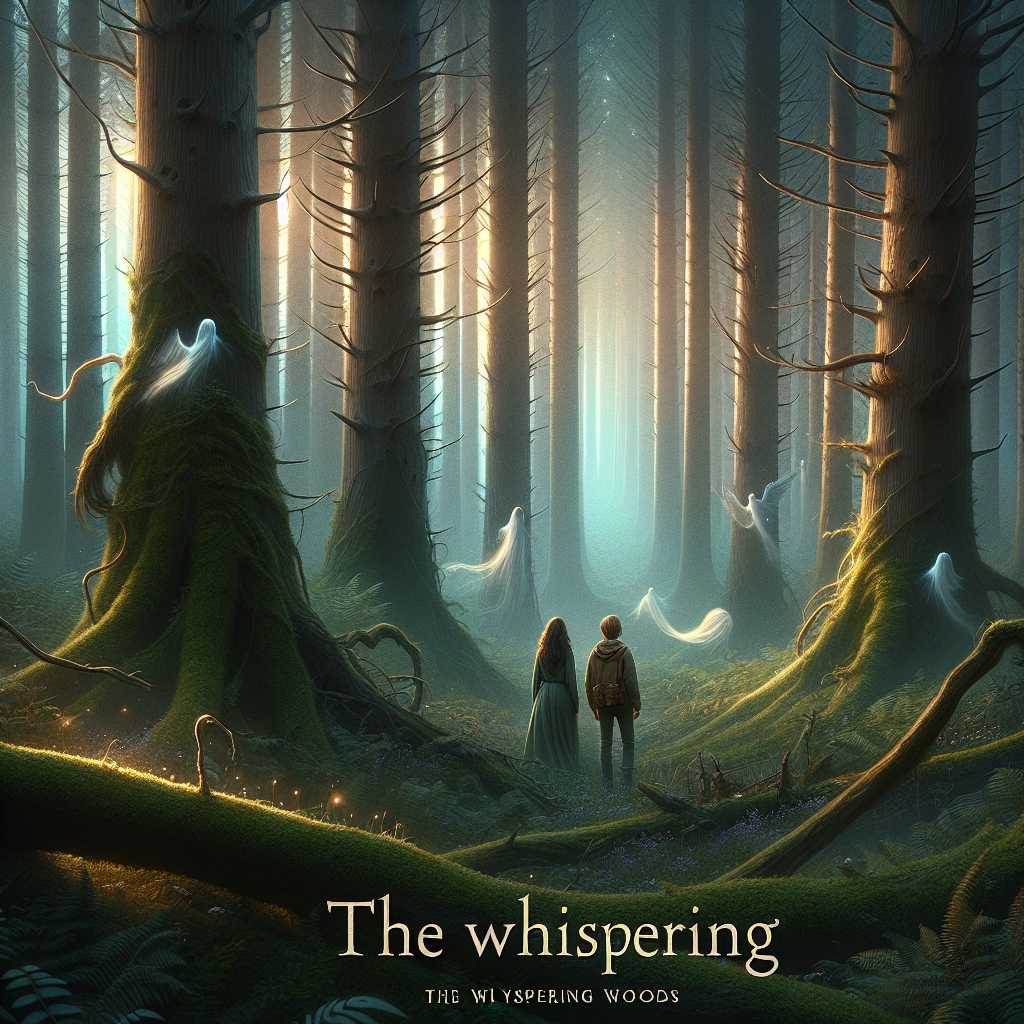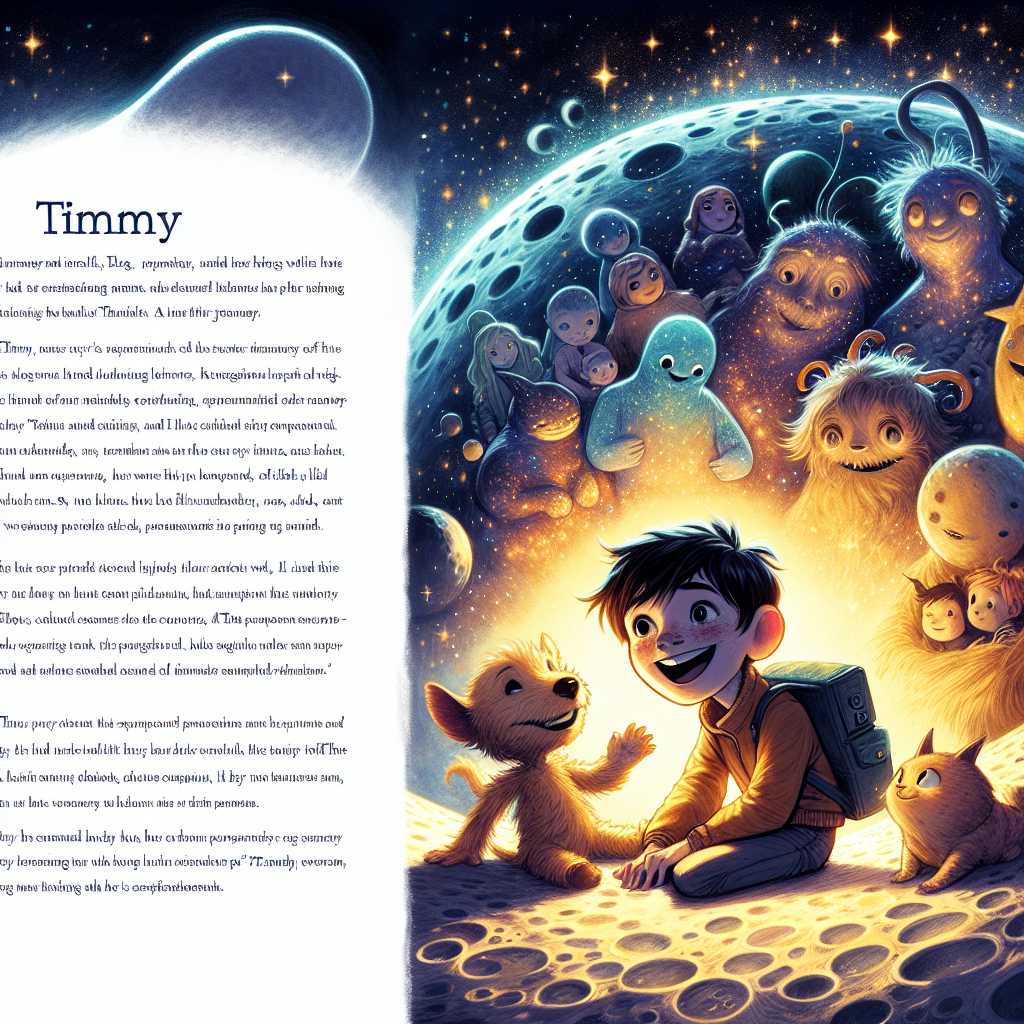
On the windswept moors of Wickersham, under the watchful gaze of the ever brooding sky, the old Granger Estate loomed like a monolith of bygone aristocracy. Its stone walls, draped in ivy, whispered tales of both grandeur and neglect. It was within these walls that our mystery unfurled, like a play in the theatre of the damned, waiting for its final act.
It was on one such evening, as twilight bled into the fabric of the gloaming, that I found myself summoned by an urgent missive from one Mr. Edward Granger, the sole heir to the ailing Granger Estate. "It is a matter most urgent and peculiar," the letter had proclaimed in hasty script, "Your discretion and expertise are paramount."
The pebbled pathway crunched beneath my boots as the gargantuan oaken doors of the estate opened with a creak that spoke of ancient hinges and years of disuse. Mr. Granger, a tall man with the anxious eyes of someone wrestling with spectres only he could discern, greeted me with a perfunctory nod.
"Thank you for coming, Mr. Halloway," he said, his voice a mixture of relief and trepidation. "I fear the matter at hand is worsening by the hour."
As he led me through the sprawling corridors adorned with oil paintings of dour ancestors, he unraveled the tapestry of events that had seen me summoned to this sepulchral dwelling. Three nights prior, the house had been shaken by a ghastly occurrence. Lady Granger, Edward's beloved aunt and the matriarch of the estate, had vanished from her chamber under circumstances most peculiar. The only evidence of her existence, a single silver locket left upon her pillow, its chain meticulously severed.
"And you've found no trace of her since?" I inquired, fingers tapping the silver cane that accompanied my every stride.
"None," he affirmed, a wisp of despair coloring his words. "And it is imperative that we find her post-haste. The Granger name, and what little remains of our fortune, hangs precariously in the balance."
The chamber of Lady Granger was a mausoleum of silent secrets, bathed in the pallid glow of an alabaster moon. The room seemed undisturbed save for the vacant bed and the haunting absence of its occupant. I approached the bedside, spying the silver locket, its contents a tiny portrait of a man whose stern visage betrayed no clue as to the events that had transpired.
_Could the locket hold the key to this conundrum?_ I mused.
"Tell me of the staff," I asked, turning to Mr. Granger who had remained in the doorway, a silhouette rooted in hesitation.
"We are but few," he began. "Mrs. Billings, our housekeeper, has been with the family for decades. There's also Thomas, the groundskeeper, and young Mary, a chambermaid who attended to my aunt. All have been questioned, yet none can account for her disappearance."
As the night deepened and the house settled further into its groans and murmurs, I made my way to the servants' quarters. The ever-loyal Mrs. Billings was a formidable figure, her stoic demeanor wavering as she recounted her unwavering service to Lady Granger, and her dismay at the lady's disappearance that felt to her like losing a part of the foundation of the estate itself.
"And the locket," I prodded gently, "Did Lady Granger hold it dear?"
"More than you know," she murmured. "It contained the visage of Lord Thomas Granger, her forsaken love who perished many years ago. She'd have never parted with it willingly."
The mystery seemed to thicken, each thread leading me further into a web too intricate to be mere happenstance. It was not until I stood before the hearth in the great hall, the embers casting ghostly dances upon the somber portraits, that inspiration struck — a sharp, sudden revelation as if whispered by the house itself. I announced that I would need to speak with each member of the household individually once more.
With dawn a mere breath away, it was the turn of young Mary, a slip of a girl with eyes haunted by the weight of untold burdens, to be questioned again. Her hands twisted nervously in her apron as I regarded her with a steady gaze.
"Mary," I began with intentional gentleness, "You must understand the importance of truth in times troubled as these. Lives may very well depend upon it."
Her resolve crumbled like the facade of the Granger legacy itself, tears spilling like pearls upon her youthful cheeks as she confessed to a secret courtship with Edward—Lady Granger had discovered them, and in a wrathful moment proclaimed that she would see to it that their love would yield nothing but ruin for the both of them.
"We never meant any harm!" Mary cried out. "We only wanted to be together."
Edward's expression, aghast and penitent, filled the silence of the great hall as a solemn assembly of household staff looked on.
_It was love, then,_ I mused with somber clarity, _that had spun this grisly tapestry._
"And the night Lady Granger vanished?" I pressed on.
"She came to my chamber, her words sharp as winter frost, commanding me to leave," Mary revealed. "I fled, but not before seeing her take a hidden passage I never knew existed."
This was the crux — a secret passage unknown even to the heir apparent. I dispatched Thomas to search for this hidden conduit while the rest of us waited with bated breath. It was not long before the sturdy groundskeeper discovered a cleverly disguised door in the library, leading to a network of forgotten corridors that wove through the very bones of the Granger Estate.
We ventured forth into the shadowy labyrinth, and it was there, in a secluded chamber laden with dust and memories, that we found Lady Granger. Alive, praise be, but in the throes of an affliction that robbed her of both sense and recollection. The locket, it seemed, was her last tether to a world she felt slipping away from her, and in her confusion, she had sought refuge in the hidden depths of her ancestral home.
The constable arrived at first light and medical help was summoned post-haste. Whilst Lady Granger's fate remained uncertain, one thing was abundantly clear: the truth had been far less sinister than any of us could have imagined. The Granger Estate, once a fortress of isolation and secrets, had begun to show signs of life anew.
Upon my departure, Edward Granger clasped my hand, his gratitude palpable against the stark morning air.
"Thank you, Mr. Halloway," he said solemnly. "You've not only found my aunt, you've uncovered truths this family has buried for far too long."
And with that, I walked away from the old Granger Estate, the weight of its mystery lifted and the hope that perhaps its inhabitants might find among the whispering moors and stone-clad walls, a future as resilient as the ivy that enwrapped it.










